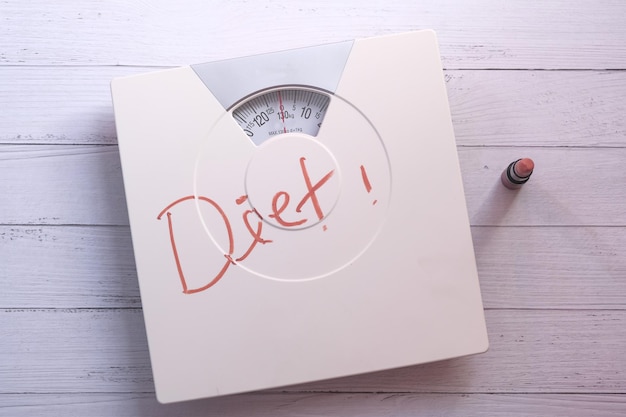What does stabilizing weight after obesity ?
Most people think that dieting and gaining weight is hard, but the truth is that the hardest part of the job is stabilizing the weight after obesity. Your weight stabilization point is your mental default amount that you always return to after a period of weight loss or gain, or naturally when you follow your normal lifestyle eating and exercise habits. Some scientists believe that the human body has a set weight to which it returns;
That is, if you lose weight, your body may work to regain the weight. In addition, the body can change the way it absorbs nutrients. Hormones can change and make you feel full sooner or even throughout the day. These factors can cause you to lose weight again. Thus, we realize that weight stabilization after obesity does not seem so easy. In this article, we have tried to examine the causes, solutions and suggestions of useful and harmful foods for weight stabilization. So stay with us until the end.
Why does the body return to the original weight after the obesity diet?
It is generally believed that the body tries to defend its set weight; In this way, if you increase the calories and control your diet, the metabolism will initially decrease in response to energy conservation, but if you increase your calorie intake again, your metabolism and activity level will increase. So you will soon return to your original weight.
According to the studies, factors affecting weight gain or loss include: genetics, diet, activity and hormones. But the question is, should we try to change the weight stabilization point after obesity or live as healthy as possible and let nature take its course?
- Genetics Our 23 pairs of chromosomes contain genes that tell our body what proteins to make. Genetics may not be the biggest determinant of weight. However, you can be predisposed to certain genes that control how and where fat is stored. Genetics is genetics! And trying to fight it seems futile. None of you can change the nature of your physical nature, but what you can do is optimize other controllable factors of your health.
- 2- Hormones Hormones are chemical messengers that are used by the body to influence certain functions and processes. They change how body fat is stored and stored, as well as how often you feel hungry. A nutritionist says, “The leptin hormones in your body tell you you’re full, while ghrelin tells you you’re hungry!” The good news is that calming these hormones down is a lot easier than it sounds. To achieve this goal, you must follow the principles of self-care, such as getting enough sleep, exercising regularly, finding ways to manage stress, and following a healthy diet. If you are in tune with your body, you will soon notice a trend when you are hungry. Feed your body with the right nutrients to avoid excess hormonal symptoms. Also try to get at least seven hours of quality sleep a night and find ways to manage your stress levels, such as mindfulness meditation, yoga, breathing, tai chi, or walking. Proper nutrition for young athletes
Diet to maintain a certain weight, the energy received in the diet should generally correspond to the energy consumed. Although it is not that simple! Even the idea that increased calories and less activity leads to long-term weight gain may not always be true. If you want to stabilize your weight after obesity, you need to abandon the idea of fast diets. A sudden and drastic increase in calories can mean that your body weight changes too quickly, making it more difficult to reach a post-obese weight stabilization point and reset to a new level. In addition, you will also be at risk of developing harmful fatty tissue.
So, to keep weight at a stabilization point, replace regular diets with healthy eating and “diet” slowly. For example, try to gain 5 to 10 percent of your weight first and focus on maintaining that for two to three months before taking the next step. Remember to always focus on quality foods.
What are the appropriate strategies to stabilize weight after obesity?
To stabilize weight after obesity, there are things you can do; Things like following a nutritious diet with adequate calorie intake and regular exercise and muscle building. But the important thing is to consult your doctor and talk to him about whether your desired weight will not harm your health.
- Trusting the wisdom of the body, unfortunately, most of us tend not to trust our bodies; Especially about weight and food intake regulation! Because we think we understand better than our body. But our body tends to set a fixed weight for itself, because the wisdom of the body knows what weight is biologically ideal for humans, and for this reason, sometimes insisting on weight gain or loss can produce opposite results.
- Peace with food and body Evidence shows that most attempts to gain weight lead to weight loss again, because this is the body’s protective mechanism. Remember that focusing on healthy mind and behavior rather than trying to control the results through binge eating or emotional eating is the key to living a more peaceful relationship with food and body and ultimately, experiencing greater health and peace.
- New approaches Researchers recommend health interventions, intuitive eating, non-diet approaches to nutrition and fitness that both remove the focus on weight gain and encourage people to engage in behaviors such as listening to the body’s hunger and fullness cues instead of counting. Calories are sensitive. Focusing on these behaviors can allow our bodies to reach a natural weight stabilization point after obesity, which can lead to higher self-esteem, more balanced food choices, and greater vitality. All in all, it seems like the best recipe for a healthy body and mind is to remember to trust your body to know what it’s doing and what it’s trying to say.



